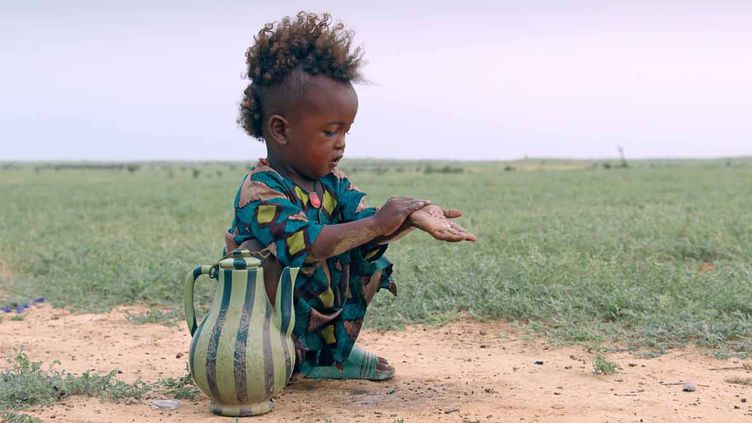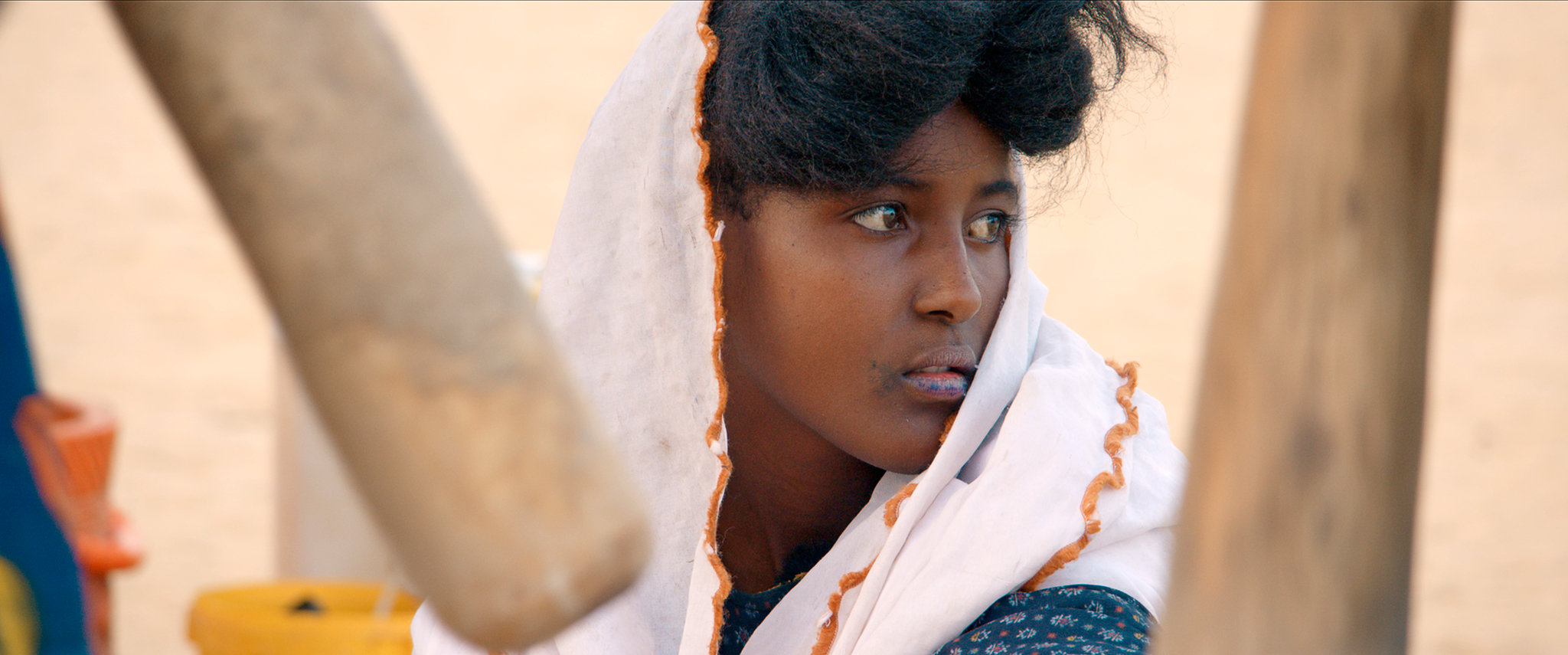Cinema is above all an experience that aims to transport spectators, make them aware of certain realities and awaken spirits. That's all the film Walking on Water has managed to do, with poetry, humour, emotion and delicacy. If there is an event not to be missed at the end of the year, it is undoubtedly this one. This documentary directed by Aïssa Maiga forcefully sublimates the beauty of Niger while depicting the reality so hard that this people has to live. Released last week in theaters, do not ask yourself any questions: see you now to see it in the cinema! You will not be disappointed, as this film is a masterpiece. One of the finest achievements of this year.
A wonderful trip to Africa
This documentary takes place in the village of Tatiste, a Fulani village in northern Niger, isolated from any form of urbanization. Niamey, the capital of the country is fifteen hours away by car. The environment is pure and breathtakingly beautiful, even if the land suffers from the scarcity of rain. The colors are bright and contrast perfectly with each other. This universe, which is poles apart from the one that can be seen in the West, seems almost unreal as its beauty is striking. Everything seems raw, and appears in its natural form.
The inhabitants of the village live using the D system, and are content with the essentials. Here, everyone knows each other, each person is part of this big close-knit family. The first protagonist to appear on screen is the nomadic Biguel Boulessey, chief of this tribe of Tastiste. Little by little, we meet the other members of this village, ranging from the newborn, to the child and finally the parents. All are charismatic, very kind and comfortable in front of the camera. They allow us to see their daily lives and they show it to us without any artifice. The viewer has the privilege of seeing them in every moment of their lives. Confidences, laughter and tears follow one another: there is no impasse in the transmission of their story.
The main character is Houlaye, a striking 14-year-old girl . In particular, the cameraman follows his story throughout the period he is with them. Her charm, maturity, strength of character and extreme kindness make her a leader of her own. She is listened to, respected and cares for everyone as her own family. She also has a little brother who we see learning to walk during the film, and each sequence is particularly touching. His innocence and fascination with everything around him softens and moves. No matter the region of the world, a child is still a child.

A painful reality
"Misery makes us cry."
These are the lucid words that Houlaye says to describe their daily lives. And these words are sadly accurate: residents cannot drink water when they want to. It is miles from the village and several hundred meters deep. Sacrifices so that everyone can have them is daily. Showers are rare, rainy days are eagerly awaited… The children are forced to make the trip to bring back, and to drag the huge bottles, although the worn animals help them in this task. This affects their concentration in class, as fatigue attacks them.
These scenes are painful to see. No one should have to fight for a vital resource. Water is therefore a constant debate in the village. There are many common discussions around this subject where women are not left out. "Speech is not reserved only for men," they say forcefully. An official even made the trip at the request of the members of the village. It has been a long time since the request was made, but it is still not processed…
The difficult absence of water
The origin of the film's title is cleverly linked to this lack of access to water. When the school's teacher, who only teaches in French, explains this problem to the class, he points out the hundreds of meters that separate water from land. One of the students innocently asks , "Does that mean we're walking on water?" He then smiles at her, amused, and replies that this is indeed the case. Even if the situation is actually less poetic than she may have said… Because it forces parents to go on an exodus to fetch water. They also leave to sell their creations or work in town to bring money back to the village. The children then find themselves alone, left to fend for themselves. Goodbyes are always heartbreaking, because journeys are long and dangerous. The family unit breaks up. Young people are still waiting impatiently for the adults to return to the village. Their love for each other is powerful. It is all the harder to see that these long separations are necessary because of the lack of water. The country is also suffering from global warming, so well explained by the teacher to the children. He does not fail to point out that rich countries are mainly responsible and dump their pollution in Africa. All this leads us to question ourselves as a spectator coming from a country where water is a given that is constantly wasted. The feeling of inequality is violent: how is it possible that this resource is not accessible to everyone on the planet ? And how can we fight so that it does not diminish in the years to come? The documentary opens the door to geopolitical questions, as well as issues related to a vital but exhaustible resource. 
The magic of production
The film is reallymade extraordinary thanks to the production. The images are stunning, the shots seen from above transport and show the village in an unprecedented way. Some scenes do not require a word, since the sequence expresses itself very well. These scenes are particularly engaging and emotional.
The close-up scenes are numerous, but the cameramen do not seem to interfere intrusively in the life of this village community. Everything is transmitted accurately. It is not difficult to understand how much the inhabitants suffer from the lack of water, because this issue is the guiding principle of the documentary. Water is thus very present on the images where it appears precious.
It is possible to see shots announcing bad news arriving on the horizon, and the music will always accompany the scenes without muffling them. Logically of African origin, it is warm and colorful. It makes you want to surrender completely to what you see, to cry when it seems necessary, to laugh when the scenes lend themselves to it.
Tears often appear at the end of this journey that is this film, and it will not be uncommon for the room to applaud what it has just seen. This is the essence of cinema: to move and make this spectator think, and that he continues to think about this moment long after leaving the theater. Do not neglect what is acquired, do not neglect water. Thank you Aïssa Maga for this masterpiece, the success it already knows is amply deserved.
Walking the water, currently in cinema
https://www.youtube.com/watch?v=cWdpeQCae3E&t=26s







































